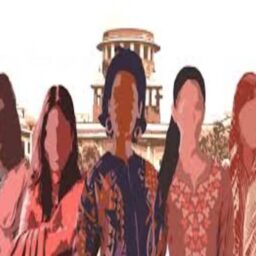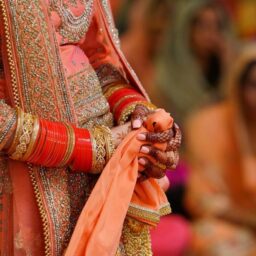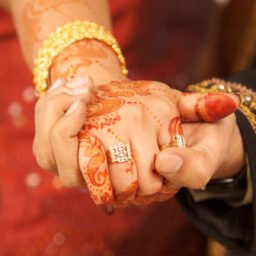Introduction
A second marriage, even though the first marriage is in continuation, is considered bigamy. In simple words, bigamy means when a person marries for the second time while their previous marriage is still in existence. Under the marital laws of India, bigamy is considered a crime if the first husband or wife is still alive. In a situation where the husband or wife is still alive, the second marriage entered into by a person is not valid and does not have any legitimacy in the eyes of the law, therefore it is considered a void marriage. Even though bigamy is a crime in India, it is still a very common practice in rural provinces. Because of this contradiction between the legal standpoint and social practice, the second wife or the victim of bigamy has little to no rights or protection under the law. Even though the second wife is not recognized as a legal wife due to judicial interpretation of existing marital law, the second wife may have some chance of receiving maintenance from the husband, which is dependent on the judges’ discretion due to the lack of any clear provision under the law.
Before moving on to the rights of the second wife, we have to understand where our law stands on bigamy, such as in Hindu marriages, which are governed by the Hindu Marriage Act, 1955, article 17[1] specifies that if any Hindu marries another person without the legal annulment of a previous marriage or in the existence of a previous marriage, they will be punished under the Indian Penal Code. Section 5 of the Parsi Marriage and Divorce Act, 1936[2], declared bigamy null and void and imposed the punishment stated in Sections 494 and 495 of the Indian Penal Code, 1860. The Indian Divorce Act of 1896 does not have a particular law for bigamy, but Section 60[3] of the Act states that neither of the husband and wife should have been in an existing marriage and that if a person gives a false oath or declaration, he or she is liable to be punished under Section 193 of the Indian Penal Code. This section indicates that, under this Act, multiple marriages are considered illegal.
Section 44 of the Special Marriage Act of 1954[4] specifies that anybody who commits bigamy is punishable under Sections 494 and 495 of the Indian Penal Code of 1860. Unlike the Hindu, Parsi, Christian, or even special marriage acts, under the Muslim Women (Protection of Rights on Divorce) Act 1986[5], there are no specific laws for bigamy. Under this act, a Muslim man can marry twice, three times, or four times if he can treat and respect all of his wives equally. If he fails to do so, he will be held accountable.
Rights Of the Second Wife in India: There are no specific provisions for the second spouse. The second wife is not entitled to have any legal right because such second marriage is considered to be void. But she can have several ways.
Maintenance Right
Under the Hindu marriage act, there is no provision that entitles a second wife to claim maintenance from husband until and unless their marriage falls under the exception provided in Section 494 of the Indian Penal Code. The right to maintenance from the husband is not available to the second wife whose marriage with her husband is deemed unlawful in the eyes of the law under Section 125 of the Code of Criminal Procedure, 1974. The offspring of the second wife, whose marriage is invalid, are entitled to maintenance until they reach the age of majority and are unable to sustain themselves. They may also seek maintenance from their father after attaining the age of 18 if they are physically or mentally handicapped and are unable to sustain themselves. This regulation, however, does not apply to the second wife’s married daughter. In certain cases, the courts have ruled that the second wife, whose marriage to her husband was illegitimate, might seek maintenance if she can prove that she had no knowledge of her husband’s prior marriage.
In certain cases, the courts have ruled that the second wife, whose marriage to her husband was illegitimate, might seek maintenance if she can prove that she had no knowledge of her husband’s prior marriage. In certain cases, the courts have ruled that the second wife, whose marriage to her husband was illegitimate, might seek maintenance if she can prove that she had no knowledge of her husband’s prior marriage. In such a case, the second wife may file a lawsuit against her husband if he refuses to pay her maintenance. She will, however, have to prove that she had no knowledge of his prior marriage at the time of his second marriage.[6]
Property rights
As to traditions, a second marriage is invalid unless such marriage comes within the exclusions provided under Section 494 of the Indian Penal Code[7]. The second wife doesn’t really hold any privileges that ordinarily the first wife has. If the marriage is legitimate, the second wife might claim rights to her husband’s property. The second wife, whose marriage to her husband is declared null and illegal in the eyes of the law, is not eligible to enjoy the right to maintenance. However, she may claim maintenance if she can prove that she was not aware of her husband’s prior marriage. Children born from a second marriage (whether legitimate or illegitimate) have the same rights to their father’s property as children born from the first wife.
The second wife will have no right over her husband’s family or ancestral property, but she can claim the husband’s self-acquired property. If the marriage is not legally accepted, the husband may pass his self acquired property to anyone, including the second wife, by a will. However, if the husband dies without leaving a will, his assets will be split among his heirs in line with the succession rules that apply to him. If the second marriage happens after his divorce from the first wife or after the death of the first wife, the second marriage will be considered legal, and the second wife will have every right to her husband’s ancestral and self-acquired property.[8]
Conclusion
The government should clarify such legislation since second wives experience a societal stigma and suffer from several problems. Such women are not supported by society or even by their own families as a consequence. Because they lack support, they feel defeated and helpless in such situations. There must be some sort of legislation that clarifies second wives’ property and maintenance rights so that they may lead a good life and thrive. The law should describe any particular amount of her husband’s property, whether inherited or self-earned, to the second wife so that she has shelter and may spend her life with the bare essentials.
Author(s) Name: Arghya Sen (Amity University, Kolkata)
References:
[1] The Hindu Marriage Act,1955, §17
[2] The Parsi Marriage and Divorce Act, 1936, §5
[3] The Indian Divorce Act of 1896, §60
[4] The Special Marriage Act,1954, §44
[5] The Muslim Women (Protection of Rights on Divorce) Act, 1986
[6] Maintenance rights of a second wife in India. (n.d.). Retrieved December 12, 2021, <https://www.myadvo.in/blog/second-wife-is-also-entitled-to-maintenance-under-section-125-of-crpc-supreme-court>
[7] The Indian Penal Code,1860, § 494
[8] Property Rights of the second wife in India. The Sunday Guardian Live. (n.d.). Retrieved December 12, 2021, from <https://www.sundayguardianlive.com/legally-speaking/rights-second-wife-india>















